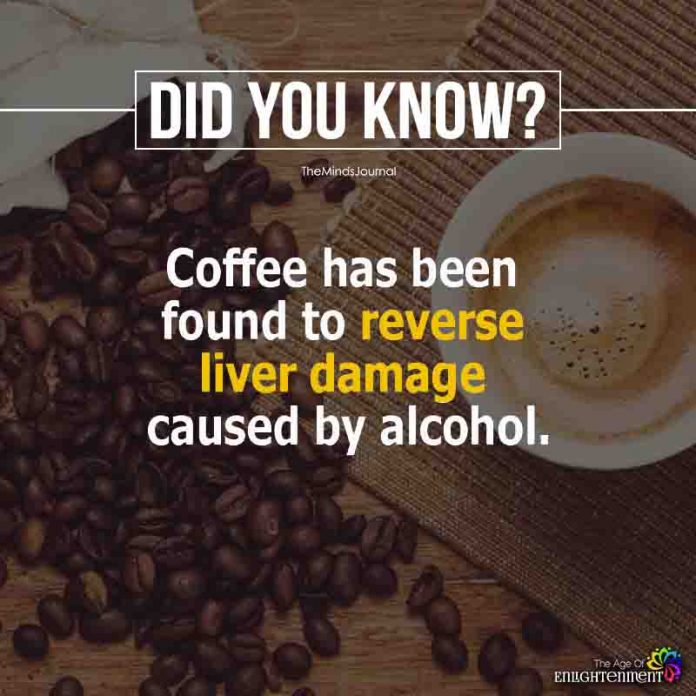Is Intermittent Fasting the best way for you to drop excess fat? I tried it for 30 days to lose weight and here are the results.
I love food. I love to eat. It makes me feel better. I love how it feels inside my mouth. The flavors. The textures. The smell. The taste. The Instagram pics. I love everything about food. Whether I am going out or ordering in. I love eating. I love my breakfast, lunch, and dinner and all the micro meals and snacks I have in between. It keeps me energized and boosts my mood.
However, with all the eating (read over-eating) comes a rather unattractive, revolting, and objectionable pot belly. And that’s how I stumbled on intermittent fasting for weight loss.
I am not someone who loves to diet. Not one bit. I love my greasy fried foods, fatty junk foods, salty processed foods, aerated beverages, and sugary treats. I love dessert. I could write a whole article on how much I love desserts. So you could imagine my hatred for so-called ‘healthy diets’. When I heard that you can eat almost anything with Intermittent Fasting (IF) and still lose weight, I got intrigued. So I delved into doing some research as I wanted to try it out. My potbelly just had to go.
The more I learned and brought about some lifestyle changes to try IF, the more realized how helpful and beneficial it can be not just for weight loss, but also for your overall physical wellbeing. With more than 70% of adult Americans becoming either obese or overweight, intermittent fasting for weight loss just might be our best solution.

What is intermittent fasting anyway?
Intermittent fasting, popularly known as IF, is a simple eating plan and a proven method to help you lose weight. By cycling in and out of fasting and eating, you maximize your body’s fat-burning mechanism. To put it simply, you fast for the majority of your day while you eat for a shortened period of time. Although conventional wisdom states that skipping meals is not a good idea, adopting the intermittent fasting lifestyle can lead to significant weight loss and help you become healthier.
After the post-absorptive state, which lasts from 8 to 12 hours after your last meal, your body enters the fasted state which is when your body starts to burn fat that was unreachable during the fed state. When your body enters the fasted state, your insulin levels significantly drop which leads to fat burning. Moreover, it also reduces oxidative stress and inflammation, lowers the risk of diabetes, makes your heart healthier, facilitates the growth of new neurons in your brain, and also helps prevent Alzheimer’s disease.
Although I am no nutrition or health expert, these benefits do sound great. Intermittent fasting is a great tool for weight loss and is a lot easier to stick to than those strict diets.
Related: Fasting For 72 Hours Can Reset Your Entire Immune System: Study Reveals
6 ways to do intermittent fasting
There are various types of IF that you can try and all these methods are effective if you do them properly. The great thing is, as there are different versions of this technique you can choose one that suits your lifestyle best and helps to accomplish your weight loss goals.
Here are 6 of the most popular types of intermittent fasting:
1. The 5:2 method
Fast for 2 days per week and eat normally for the rest of the 5 days. Alternatively, men can consume 600 calories and women can eat 500 calories during the 2 fasting days.
2. Alternate day fasting
Fast for 24 hours every alternate day per week. Fast one day, eat the next day, and repeat this process throughout the week. If you need to eat on fasting days, restrict your consumption to 25% of your total calorie requirement.
3. The Eat-Stop-Eat method
Fast for a full day once or twice per week. You may eat normally the rest of the days of the week.
4. The Warrior Diet
Popularized by author and fitness expert Ori Hofmekler, this requires you to fast throughout the day and eat a heavy meal at night. Alternatively, you may eat small quantities of fruits and vegetables during the day and have a huge dinner.
5. The 16:8 method
Fast for 16 hours each day and eat 2, 3, or more meals in an 8-10 hour “eating window”. The fasting period can vary from 14-15 hours for women.
6. Spontaneous meal skipping
Choose to skip your meals whenever it’s convenient for you. Avoid eating a meal when you are running late or don’t feel that hungry.
How can you practice IF?
Among these 6 different techniques, I personally prefer the 16:8 technique as it goes smoothly with my personal and social life. For me, the best way to use intermittent fasting for weight loss is to fast for 12 to 18 hours every day and eat in a shortened time window which is usually 8 to 10 hours. So you can have your last meal of the day at 8 pm and your first meal of the day at 12 noon the next day.
Although you can eat anything you want and may eat any snacks and small meals in between, make sure you stay away from junk food.
Related: 21 Health And Nutrition Myths Backed By Science
A typical intermittent fasting plan in this technique may look like this:
- Skip your breakfast.
- Eat your first meal around 12 noon or 1pm (preferably 16 hours after your last meal).
- Eat dinner by 8 pm. You can even eat dessert if you want.
- Don’t eat anything after your dinner.
- Eat again next day at 12 noon or 1pm.
- Repeat the schedule every day.
If you want, you may stick to only 2 meals (lunch and dinner) and avoid eating anything else throughout the day, as I did. However, you may drink tea or coffee while doing it. But make sure you stay away from all the tempting milk, cream, and sugar.
You need to understand that intermittent fasting is not a diet. It’s simply an eating schedule that can help you manage your weight and make you a lot healthier over time.
How intermittent fasting works
Now that you have a fair idea about IF, let’s take a look at the science of intermittent fasting and how it affects our bodies and hormones.
Your body goes through a lot of things when you eat properly:
- Your sugar or blood glucose levels rise based on what you eat.
- Insulin, which is a hormone, is created by your pancreas.
- Insulin instructs the cells to load up on glucose as the food starts to break down in your gut.
- Hormones such as leptin and CCK (cholecystokinin) are released by your body that tells you when you’re full.
But when you consume food frequently, eat a lot of sugar and carbs and ignore when your body tells you it’s full, your body struggles hard to burn off that energy. The pancreas starts working overtime and any additional glucose is stored as fat. As this cycle keeps repeating over time, your chances of gaining weight increase along with the risk of insulin resistance & other diseases like cancer and diabetes. That can’t be good. Right?
Intermittent fasting allows you the opportunity to reform and reset this. When you fast and there’s a gap between meals, your insulin level reduces, glucose level becomes stable, and the body gets an opportunity to fix things. Your body stores calories (energy) through body fat. When you start fasting, your body goes through a lot of processes to access stored energy.

Here’s how your body and metabolism is affected when you do IF:
- Fasting leads to lower insulin levels which help in fat burning.
- Fasting boosts human growth hormone (HGH) levels almost 5 times that helps in muscle gain and fat loss.
- Your nervous system sends noradrenaline (norepinephrine) to break down fat cells into free fatty acids which are burned as energy.
- Studies have found that short term fasting helps to increase metabolism by almost 3.6 to 14%.
IF results in various changes in your body that lead to better fat burning.
Related: The Amazing Benefits Of Fasting On Our Body According To Science
What does the research say?
A lot of encouraging research has been done on IF on fat rats. No…that’s not a metaphor for anything. IF studies on overweight male rats have shown that the rodents not only lost weight, but their blood sugar levels, cholesterol, and blood pressure also improved.
Human studies on intermittent fasting for weight loss have distinctly shown that it is exceptionally effective and safe for humans. But IF is only as effective as any other healthy diet recommended by experts for weight loss. Moreover, fasting can be really difficult for most of us.
Does IF work? Here’s what I found after 30 days.
To manage my own body weight, I decided to try out intermittent fasting for a month. I won’t lie to you, it wasn’t easy. But was it helpful? Here’s what I found:
1. It’s hard, but you’ll get used to it in a week
As I said, I love to eat and I love my breakfast. So skipping breakfast wasn’t easy for me. The first 4-5 days were the hardest. I struggled a lot and I felt constantly hungry, especially in the morning. My stomach growled a lot and in the middle of meetings with clients and my boss stared at me. Imagine that.
I felt low on energy and kept thinking about food. I checked my watch all the time as I desperately waited for my first meal of the day at 1 pm (I was having dinner at around 9 pm). But when it was time to eat, I became exceptionally happy and after a long time, I really enjoyed my food.
After a week, I became accustomed to this schedule and things got a lot easier. Thankfully. I wasn’t thinking about food all the time anymore. I wasn’t feeling that much hungry anymore. My mind felt a lot clearer and I was able to focus on my work a lot more.
If you want to try IF, I would suggest that you ease into it and slowly get familiar with the sensation of being hungry. For instance, on the first day, have your breakfast an hour late. On the second day eat after 2 hours and so on until you hit the 16-hour mark.
2. I lost weight
And my stomach was a lot less bloated. I noticed this on the very third day which gave me the motivation to keep going during my initial days of struggle. Moreover, as I had a restricted “eating window”, I was consuming a lot less food than I usually did with a normal eating schedule. And I was drinking a lot more water.
By eating less, my stomach felt less bloated and I started to lose weight. This clearly showed I had a habit of overeating. Over a period of 30 days, I had lost almost 4 kgs of body weight and I feel a lot better and lighter now. It certainly feels great.
3. My immune system improved
Studies have found that IF can significantly improve the immune system in humans. For the 30 days, I tried intermittent fasting, I am glad to say I did not fall sick once. In fact, after the first few days, I felt a lot more energetic and livelier than before. I was doing a lot more. I was faster and generally felt a lot better physically, psychologically, and emotionally.
Related: 8 Questions To Ask Before Going On A Diet
4. Mindful eating equals healthier eating
Although some experts say you can eat as much as you want or have 3-4 meals during your “eating window” of 8-10 hours, I stuck with 2 meals each day. That meant I was eating a heavy lunch and dinner. And as I could only eat twice each day, I made sure I was eating right.
Before I started, I made a personal mission to strictly follow these rules when it came to my diet:
- No added salt
- No added sugar
- No fried/oily food
- No packaged/processed food
And this has helped me greatly. Removing sugar alone from your diet can have an incredible effect on your body and health. And I was happy I stuck with it. Moreover, I was eating a lot healthier and staying away from junk food that I used to love so much. Although I had my cheat meals, I stuck with a healthy diet, more or less.
As I was eating intentionally, I was eating mindfully. This meant I was enjoying my meals a lot more, savoring each bite. When I was eating, I was eating mindfully. I was not on my phone or watching TV or casually talking with someone.I was eating and focusing on the textures and flavors and everything else in between. This was a very personal experience for me and it helped me be more mindful in life and live in the present moment.
5. I worked out more intensely
Okay, if you want to try out intermittent fasting for weight loss like me, then hitting the gym can definitely help you achieve those weight loss goals and make the process a lot easier and faster.
IF helped me to train a lot harder and a lot more intensely. I could go to the gym anytime without having to worry about the last time I ate or if had eaten before hitting the gym. Having to worry less about my eating habits, I could focus more on my 1 hour of dedicated training. Moreover, intermittent fasting motivated me to train harder as I was already giving up food for better health. So it kept me focused on what actually mattered – my health. So I pushed myself harder and lifted like I never used to.
For me, there were no ill effects of fasting and working out with an empty stomach. In fact, I was training better. However, I would recommend you consult your doctor once before getting into this as our bodies may react in different ways.
6. I still had a social life
As I didn’t have to worry about a strict diet and I could eat almost anything, I was able to hang out with my friends and family and have dinner with them. I could still enjoy food with others. Although some IF experts suggest you shouldn’t eat after 7-8 pm, I think you can modify it on some days as long as you hit the 16-18 hour fasting mark each day.
So If you have a family dinner at 9-10 pm on a particular night, make sure you eat around 2-3 pm the next day. So I enjoyed my social life and was able to hang out with my favorite people whenever I felt like it.
I was pretty happy with my final result. Being a Scorpio, it was hard for me to stop eating and control myself. But still, I pushed on and managed to lose almost 4 kgs. My stomach didn’t feel bloated anymore and my pot belly was decreasing. Although I didn’t get any abs, it was still a decent upgrade for me to keep trying IF for some more time to come.
Related: The 3 Main Causes Of Binge Eating and How You Can Stop
Additional benefits of IF
Losing weight is not the only benefit of IF as you have realized by now. Here are some additional benefits of intermittent fasting that you need to know about.
- Intermittent fasting reduces cardiovascular risk, improves blood pressure and boosts overall cardiovascular health.
- It reduces inflammation which facilitates in improving longevity and lowering risk of various diseases.
- IF helps to improve cellular function by removing cellular waste and damaged cells.
- Fasting also helps in healthy aging by protecting and caring for the cardiovascular system and managing blood sugar levels.
IF works, but make your food count
“A person who fasts has a different mindset altogether. There is no temptation for food, just a focus on getting through the fast. The added benefits of intermittent fasting should replace the temptation for food. Instead of thinking about your next meal, think about how your fast is going to benefit you by helping you to lose weight.” – Jason Legg
There are a lot more benefits of intermittent fasting and this article would be a lot longer if I started explaining it all to you along with all the overwhelming evidence. IF is certainly the easiest tool to lose excess fat and weight than any other type of diet plan. It’s a lot easier to follow and more sustainable.

The fact is, fasting is a natural practice and most of us have fasted intentionally or unintentionally before. IF is simply a more structured and effective approach for people who want to manage their weight. Although most average people like me will not experience any side effects from fasting, if you have any underlying health conditions or taking certain medications, then it would be wise to consult a doctor or dietitian before you start.
If you’re planning to try IF, make sure you eat healthy and stay hydrated throughout the day. You can’t just fast for 16 hours and then eat as much junk food as you want and then expect to get healthier and lose weight. That’s not how it works.
Related: What Causes Food Cravings And How To Stop Them
Calories matter.
What you eat matters.
When you eat matters.
The quality of food you consume is key. So go ahead and fast.











Leave a Reply